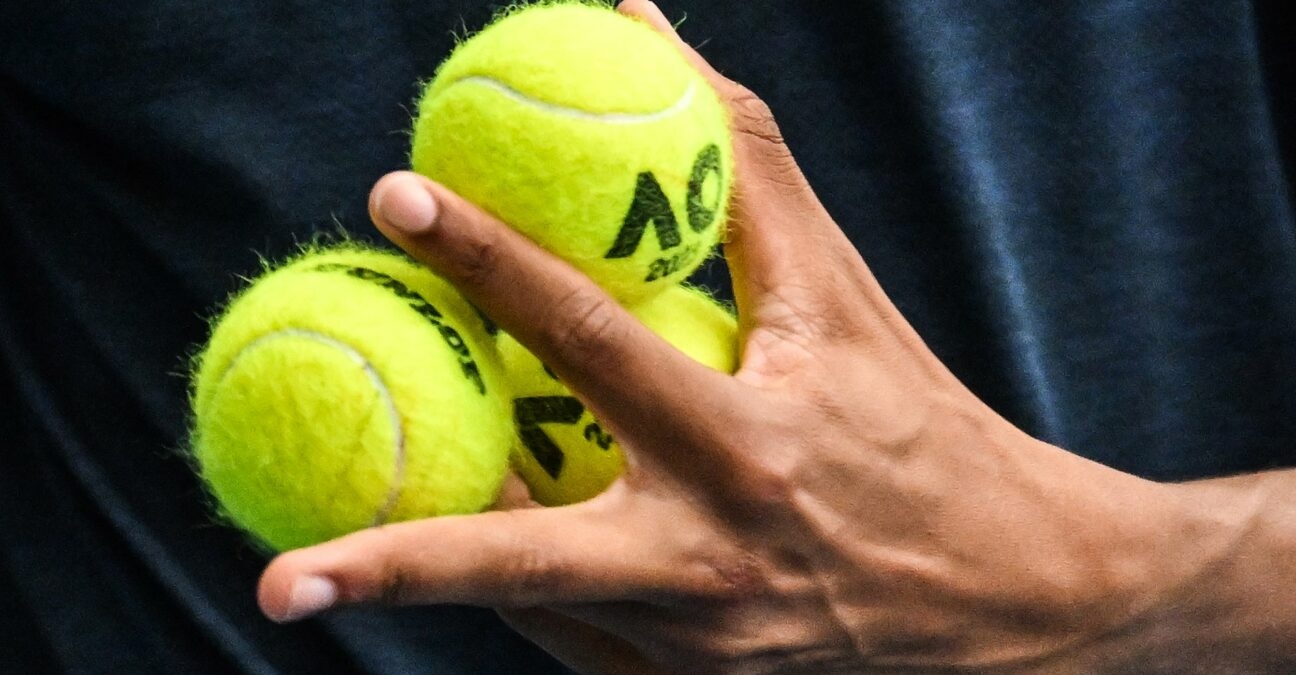How have tennis tournaments been marketed and promoted over the years?
Tennis’s relationship with big business and brands has developed over the decades
 Eubanks, Auckland 2023 – © Photosport / Panoramic
Eubanks, Auckland 2023 – © Photosport / Panoramic
Business people such as Mark McCormack understood that sports like golf and tennis had the potential to be the source of considerable financial capital, and the athletes competing in these sports could gain opportunities that would leave them financially stable long after their playing days were over. McCormack is routinely considered the founder of sports marketing because his company, the International Management Group (IMG), propelled tennis stars like Billie Jean King, Bjorn Borg, and Monica Seles into the eyes of eager sponsors.
McCormack also changed the way tennis tournaments operate, in particular, Wimbledon. In 1978, McCormack invited Andre Heiniger, the chairman of Rolex, to Wimbledon to sit in the Royal Box. After much persuasion by McCormack, Heiniger decided to associate his brand with tennis. This decision changed the face of Wimbledon as Rolex is now synonymous with the tournament and Roger Federer, the brand ambassador for Rolex. Over the years, tennis tournaments and events have continued to be marketed in various ways, shifting from retail brands like Rolex to entertainment companies, and here we explore a few of these in detail.
1) Retail Partnerships
In June 2023, Haier, a UK retailer of kitchen and home appliances, announced a multi-million-pound marketing campaign to generate buzz around their partnership with the Cinch Championships, a popular ATP tennis event held at Queen’s Club in London, England. The Cinch Championships is the longest-running event on the ATP tour, and the UK retailer launched various paid media campaigns, including securing advertising sports on all London FM radio stations and an OOH campaign targeting different underground stations close to the Queen’s Club. The stations included Bond Street, Green Park, Victoria, and Barons Court. While some consumers may have wondered how a partnership between a tennis tournament and kitchen and home appliances retailer could work, true tennis fans will know there is a considerable link as it is an old practice in tennis to keep the balls in a refrigerator to maintain the bounce until they are used.
2) Online Casino Partnerships
In recent years, online betting companies have become interested in sponsoring sporting events, and it is very common today to see online gambling brands on interactive screens around pitches or the shirt sleeves of players. Sports teams and tournaments are equally interested in receiving the benefits of these sponsorships as online gambling is a growing industry, with a projected market value of $213 billion by 2028. It’s also beneficial that there are so many online gambling organizations worldwide to strike partners with, such as the UK’s William Hill and New Zealand’s Wildz Casino. That means there is no competition to sign with these brands as multiple options exist. Even better, most countries have their own tennis tournaments, so they can partner with local online gambling organizations, helping to generate regional capital. For example, a popular online casino in New Zealand is Wildz Casino NZ, known for its welcome bonuses and range of games, and one of the biggest tennis tournaments in New Zealand is the ASB Classic, which will take place between January 1-13, 2024.
3) Technology Partnerships
You also commonly see technology companies entering into partnerships with tennis tournaments, and one of the most significant examples is IBM Consulting’s partnership with Wimbledon. IBM is a professional consulting and services firm that has long worked with Wimbledon to provide AI-generated insights. Wimbledon uses IBM’s technologies to capture moments from games that fans can access easily, providing a unique way to watch the game and get highlights. The game of tennis has a lot to offer, from socialization opportunities to keeping fit, but it’s also a profitable business that Mark McCormack first realized in the 1950s. This realization has not faded over the years, and we’re increasingly seeing more industries, from retail to entertainment, entering into partnerships with tennis stars and tournaments.
People in this post
More tennis news
Svitolina delivers tactical masterclass to make Australian Open quarter-finals

January 20, 2008: The day Hewitt and Baghdatis finished the latest match in Australian Open history

Tony Jones apologises to Djokovic for offensive comments

Djokovic refuses on-court interview after host broadcaster “mockery”

Alcaraz on Djokovic quarter-final: “Not the right player to be facing!”

